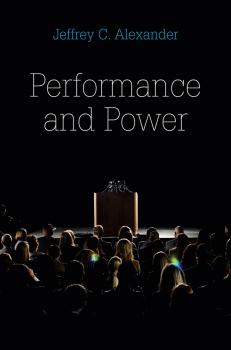ТОП просматриваемых книг сайта:
Jeffrey C. Alexander
Список книг автора Jeffrey C. AlexanderАннотация
Pionero de la sociología cultural, Alexander ha creado un nuevo modelo sociológico para aproximarse al estudio del tradicional problema del binomio cultura-sociedad. Este volumen reúne una serie de influyentes ensayos de amplio alcance, donde el autor insiste en que, a pesar de la racionalización y de la diferenciación, el mundo moderno continúa «encantado» en aspectos fundamentalmente significativos; que el pensamiento mágico e irracional conserva su centralidad para el individuo y para la acción colectiva; y que los anhelos emocionales y las fantasías son esenciales para las organizaciones y las instituciones, así como el deseo de ser salvado y el miedo a ser condenado todavía estructuran los movimientos sociales y la acción colectiva, pese a que ahora asumen formas seculares más que religiosas. Alexander está dedicado a la creación de una ciencia social más racional y una sociedad más democrática e inclusiva.
Аннотация
In this book Jeffrey C. Alexander develops an original social theory of trauma and uses it to carry out a series of empirical investigations into social suffering around the globe. Alexander argues that traumas are not merely psychological but collective experiences, and that trauma work plays a key role in defining the origins and outcomes of critical social conflicts. He outlines a model of trauma work that relates interests of carrier groups, competing narrative identifications of victim and perpetrator, utopian and dystopian proposals for trauma resolution, the performative power of constructed events, and the distribution of organizational resources. Alexander explores these processes in richly textured case studies of cultural-trauma origins and effects, from the universalism of the Holocaust to the particularism of the Israeli right, from postcolonial battles over the Partition of India and Pakistan to the invisibility of the Rape of Nanjing in Maoist China. In a particularly controversial chapter, Alexander describes the idealizing discourse of globalization as a trauma-response to the Cold War. Contemporary societies have often been described as more concerned with the past than the future, more with tragedy than progress. In Trauma: A Social Theory, Alexander explains why.
Аннотация
Performativity has emerged as a critical new idea across the humanities and social sciences, from literary and cultural studies to the study of gender and the philosophy of action. In this volume, Jeffrey Alexander demonstrates how performance can reorient our study of politics and society. Alexander develops a cultural pragmatics that shifts cultural sociology from texts to gestural meanings. Positioning social performance between ritual and strategy, he lays out the elements of social performance – from scripts to mise-en-scène, from critical mediation to audience reception – and systematically describes their tense interrelation. This is followed by a series of empirically oriented studies that demonstrate how cultural pragmatics transforms our approach to power. Alexander brings his new theory of social performance to bear on case studies that range from political to cultural power: Barack Obama's electoral campaign, American failure in the Iraqi war, the triumph of the Civil Rights Movement, terrorist violence on September 11th, public intellectuals, material icons, and social science itself. This path-breaking work by one of the world's leading social theorists will command a wide interdisciplinary readership.





